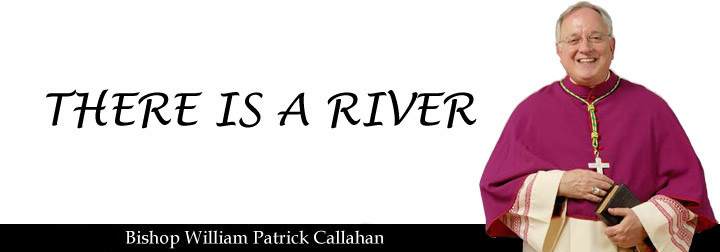Every year, at the beginning of Catholic Schools’ Week, the annual Brains and Brawn event is held in La Crosse. It’s a fun event for kids representing our wonderful Catholic schools from all over our beloved Diocese. The event features a basketball tournament and a knowledge competition. The students “strut their stuff” in some really inspiring ways giving evidence of the work being accomplished by parents, faculties, and administrators—oh, yes, and the children themselves—in our Catholic schools.
As I reflect on the beginning of Catholic Schools’ Week for this year, I am reminded of some of the great theological principles of the Patron Saint of Catholic Education, St. Thomas Aquinas. St. Thomas focused attention and energy in his estimation of the human person, on the beautiful mixture of faith and reason that truly makes human beings human.
A favorite gift I received this past Christmas is the book by Pope Emeritus Benedict XVI: Last Testament. Pope Benedict, in this book, offers a summary in philosophy, theology, and plain beautiful common sense, of his magnificent and prolific life as one of the most significant pontiffs in the history of the Church. Presented in an interview format, the Pope responds to various questions, many of which are certainly pertinent to the condition of Catholic thought and Catholic response to the problems of our increasingly secularistic world.
A question posed to the Pontiff early on in the book concerns dealing with problems of faith in the world. Benedict responds that, “the difficulty so often with God is the question of why there’s so much evil and so forth; how something can be reconciled with His almighty power, with His goodness, that certainly assails faith in different situations time and again.” The Pope goes on in a follow-up question responding that, “primarily by the fact that I do not let go of the foundational certainty of faith, because I stand in it, so to speak, but also because I do not understand something, that doesn’t mean that it is wrong, but that I am too small for it.”
I have added the emphasis for the certainty of faith above.
Faith and reason become the basis of Catholic life in the world. To maintain the certainty of faith in a world that continually denies the foundation of that faith namely: God creates a variety of stress in the believer who is actually trying to live a genuine faith-filled life.
Brains and brawn—reason and strength—are definitely building blocks in the life of the faithful Catholic who will try to maintain faith in day-to-day life. From St. Thomas Aquinas even up to Pope Benedict, it certainly seems that the importance of Catholic education—Catholic thinking—must be guaranteed by the strength of Catholic Schools.
Brains and Brawn is an annual event at which our children compete and have fun doing it. It offers opportunities for all students to share their gifts and talents in a positive and challenging manner. The underlying strength of having such an event reminds all of us in the Catholic community of the importance of brains and brawn—reason and strength—in our everyday life. Every day, we must, as both St. Thomas and Pope Benedict have urged, stand on the certainty of faith. To do that we must have strength and courage and knowledge—brains and brawn—reason and strength. Our minds must be filled with knowledge of the truth, the truth that comes from God. We must be able to defend that truth—not merely with brute strength, but with interior strength—positive reason, virtue, and the Gifts of the Holy Spirit.
Celebrating Catholic Schools’ Week promotes these values and virtues. The celebration moves us beyond a simple awareness of Catholic schools existing to be an alternative to public schools. We exist to promote our faith—to teach value and virtue to our young. I support Catholic schools as my positive investment in the future. Catholic education matters; and Catholic schools make the difference. Support our schools and witness the difference our students are making—live the faith with your reason and strength.
